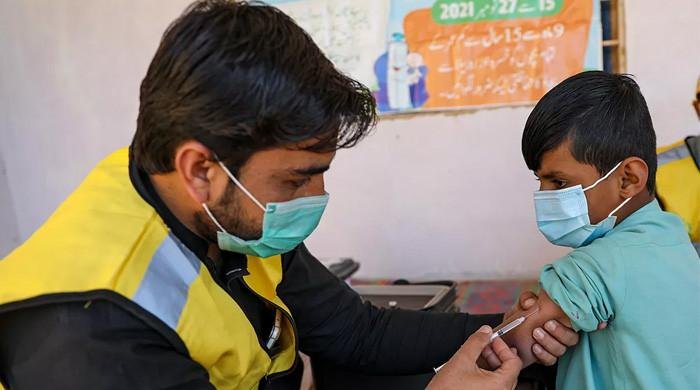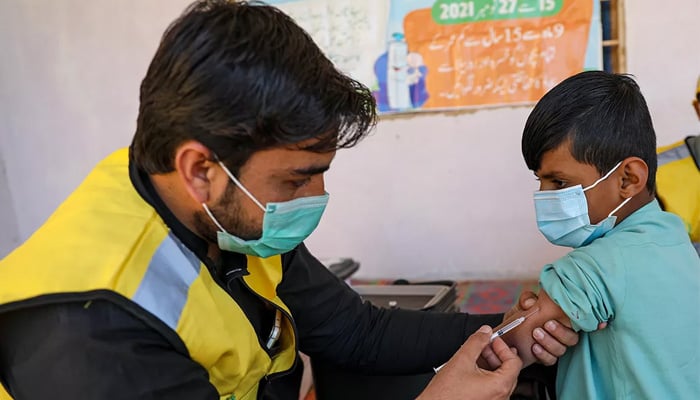
Pakistan faces ongoing challenge in eradicating zero-dose children: study

- Thousands of children in Pakistan face vaccine deprivation since Covid-19 pandemic.
- Number of zero-dose children worldwide fell by nearly 75% from 1980 to 2019.
- Lancet study suggests South Asia must significantly accelerate immunisation efforts.
Despite notable progress in routine childhood immunisation over the past forty years, Pakistan remains among the eight countries accounting for over half of the world’s “zero-dose” children — those who receive no vaccinations during their first year of life.
According to a landmark global study published by The Lancet on Tuesday, the Covid-19 pandemic reversed years of steady progress, pushing millions of children globally — and thousands in Pakistan — into vaccine deprivation.
The Global Burden of Disease (GBD) Study 2023, which analysed trends from 1980 to 2023 and projected coverage to 2030, found that although the number of zero-dose children in Pakistan decreased significantly by 2019, the country remains among the top contributors, alongside Nigeria, India, and Ethiopia.
The study shows that from 1980 to 2019, the number of zero-dose children worldwide fell by nearly 75%, yet that progress has since stalled. As of 2023, Pakistan was still home to a considerable portion of the 15.7 million global zero-dose children — those who had not received even the first dose of the diphtheria-tetanus-pertussis (DTP1) vaccine.
The Covid-19 pandemic dealt a major setback as Pakistan, like many other countries, experienced disruptions to immunisation services due to lockdowns, resource diversion, and vaccine misinformation. Globally, 15.6 million fewer children received DTP3, 15.6 million missed measles vaccines (MCV1), and 15.9 million missed polio vaccines between 2020 and 2023 compared to a scenario without Covid-19 disruptions.
Although Pakistan’s recovery is under way, the report notes that coverage has yet to return to pre-pandemic levels. Launched in 1974, the Expanded Programme on Immunisation (EPI) has saved an estimated 154 million lives globally, most of them children under five. Pakistan, despite chronic governance and logistical challenges, benefited from EPI and Gavi support, improving coverage of vaccines like DTP3 and Bacillus Calmette–Guérin (BCG).
However, inequities remain — both across provinces and between urban and rural populations. The Lancet study warns that without immediate action, Pakistan is unlikely to meet the 2030 target of halving its zero-dose children from 2019 levels.
The Immunisation Agenda 2030 (IA2030), endorsed by the World Health Assembly, aims for 90% coverage of life-course vaccines like DTP3, pneumococcal conjugate vaccine (PCV3), and the second measles dose (MCV2). The study forecasts that only DTP3 has a realistic chance of meeting this goal globally — and only under optimistic conditions.
Globally, while coverage for older vaccines like BCG and DTP1 nearly doubled from 1980 to 2019, gains have plateaued or declined in recent years. Even high-income countries saw stagnation or reductions in uptake for some vaccines. The Covid-19 pandemic created the largest disruption to immunisation services in recent history.
South Asia, which accounted for 12.5% of the world’s zero-dose children in 2023, must significantly accelerate efforts. Pakistan, though showing some post-Covid improvement, will need to raise its immunisation coverage by at least two percentage points annually to meet IA2030 targets — a pace achieved by few countries historically.





